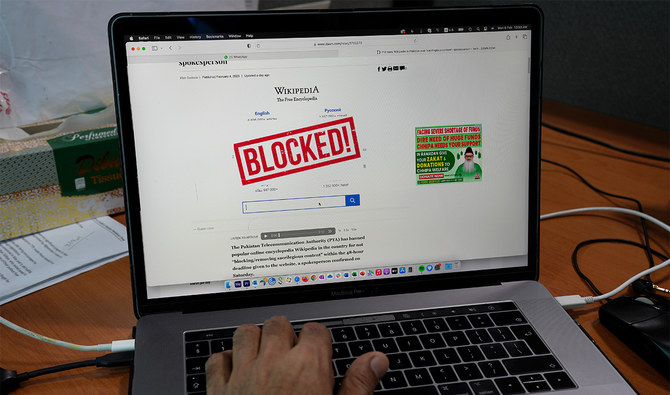ISLAMABAD: Prime Minister Shehbaz Sharif on Monday ordered the restoration of online encyclopedia Wikipedia "with immediate effect", a couple of days after it was banned for uploading "blasphemous" content on its platform.
Pakistan last week banned Wikipedia across the country, accusing the platform of deliberately not removing blasphemous content. Pakistan's telecommunication regulator said it provided the platform multiple chances to present its stance in a hearing but it failed to do so.
Blasphemy is a sensitive issue in Muslim-majority Pakistan, and social media giants Facebook and YouTube have previously been banned for publishing content deemed sacrilegious.
The move drew flak from digital rights activists and proponents of free speech, who pointed out how the move would deprive millions across the country of free knowledge and research material.
According to a statement by the Prime Minister's House (PMO), the premier constituted a three-member ministerial committee comprising the ministers of law, information and economic affairs to deliberate on the matter.
The committee said Wikipedia is a "useful" website that supports the dissemination of knowledge and information for the general public. "Blocking the site in its entirety was not a suitable measure to restrict access to some objectionable contents / sacrilegious matter on it," the committee said.
The committee said further that the "unintended consequences" of the blanket ban outweigh its benefits.
"Based on the above recommendation, the Prime Minister is pleased to direct that the website (Wikipedia) may be restored with immediate effect," the PMO stated.
The statement said that the prime minister had constituted a separate cabinet committee comprising the ministers of IT, law, information, commerce and communications that may "co-opt any expert members or seek opinion from expert individuals/organizations to reach its findings."
The committee would review the suitability of the PTA's action of blocking Wikipedia to restrict access to blasphemous content. It would also explore and recommend alternative measures to remove or block blasphemous material on Wikipedia and other online sites and provide any other recommendations to control unlawful online content "in a balanced manner."
In September 2020, Pakistan blocked Tinder, Grindr and three other dating apps for not adhering to local laws, with the Pakistan Telecommunication Authority (PTA) saying it had taken the decision to curb the “negative effects of immoral/indecent content streaming.”
















